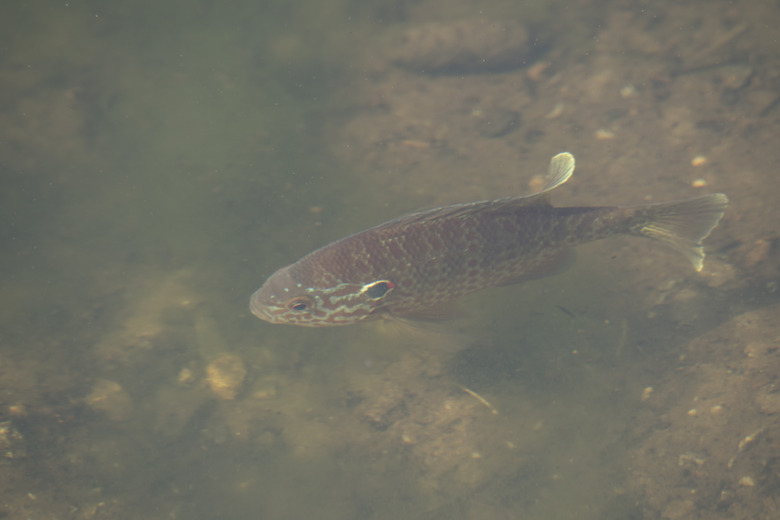How To Tell The Difference Between A Male Crappie & A Female Crappie
When looking at some fish, you can easily spot the physical differences between the two genders. For example, female beta fish have a white spot on their bellies. In the case of catfish, females have smaller heads than the males. With crappies, however, it is more difficult to tell the difference between a male and female. Still, it is not impossible to tell the gender of this extremely popular member of the sunfish family..
Step 1
Look for eggs or newly hatched fish nearby. If the crappie is guarding a nest, this is a male. The females lay the eggs and then quickly leave the area.
Step 2
Check the color of the belly and fins prior to and during spawning, suggests biologist Mike Colvin during an interview with "Game & Fish" magazine. On a male crappie, these areas will change to a black color. The coloration of the female will not change.
Step 3
Look for a swollen belly prior to spawning season. Mature females can carry more than 100,000 eggs.
Warning
Size is not a good indication of sex because male and female crappies are usually the same size.
Cite This Article
MLA
Herman, Samantha. "How To Tell The Difference Between A Male Crappie & A Female Crappie" sciencing.com, https://www.sciencing.com/tell-male-crappie-female-crappie-6151636/. 22 November 2019.
APA
Herman, Samantha. (2019, November 22). How To Tell The Difference Between A Male Crappie & A Female Crappie. sciencing.com. Retrieved from https://www.sciencing.com/tell-male-crappie-female-crappie-6151636/
Chicago
Herman, Samantha. How To Tell The Difference Between A Male Crappie & A Female Crappie last modified March 24, 2022. https://www.sciencing.com/tell-male-crappie-female-crappie-6151636/
